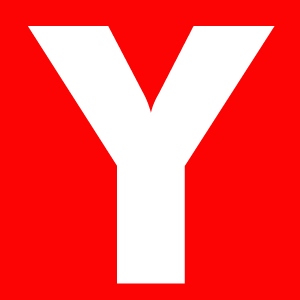Donald Ziraldo launched Inniskillin Wines in 1975 with co-founder Karl Kaiser.Arterra Wines/Supplied
Donald Ziraldo, who helped kick-start the modern wine industry in Canada by launching Inniskillin Wines with co-founder Karl Kaiser in 1975, is pushing for national wine standards to bolster interprovincial trade and promote the authenticity of homegrown wines.
“VQA Canada could market wines based on one single rule: 100 per cent Canadian,” says Ziraldo, co-founder of Inniskillin Wines and now owner of Ziraldo Estate Winery in Niagara-on-the-Lake.
“Why don’t we just replace the sign that says Ontario at the LCBO with one that says VQA [Vintners Quality Alliance] Canada and do the same thing across the country so there’s a cohesive story for consumers?”
Inniskillin received the first winery licence in Canada since 1929, two years after Prohibition ended. Ziraldo and Kaiser’s estate winery would elevate the profile of the Canadian wine industry, by winning international acclaim – including the coveted Grand Prix d’Honneur at Vinexpo in Bordeaux in 1991 – and building an international brand for ice wine.
Ziraldo was the guiding force behind the development of VQA Ontario, an appellation system which revolutionized winemaking in the province when introduced in June, 1989.
Winemaker Thomas Bachelder wants to share a taste of Niagara with the world
Dave Sheppard, a founding Canadian winemaker in Niagara, prepares to step back from his role at Flat Rock
Drafted in response to the free-trade agreement with the U.S., the regulations eliminated the use of inferior labrusca grape varieties and provided consumers with transparent labelling of 100-per-cent Ontario-made wines that were evaluated by an independent panel of experts to assure quality.
“With free trade, Canada’s beer industry got taken care of and the wine industry got thrown under the bus. That whack on the head turned out to be the best thing that happened for us,” Ziraldo says.
While the country’s large wineries were threatened by the signing of the Canada-U.S. Free Trade Agreement in 1988, small estate wine producers, such as Cave Spring, Henry of Pelham and Inniskillin, focused their efforts on producing premium wines from European vinifera vines and thrived.
Ontario’s appellation system was run on a voluntary system for 10 years before the industry opted for third-party oversight. In 2000, the provincial government passed the Vintners Quality Alliance Act, 1999. According to Wine Growers Ontario, there are more than 190 wineries registered under VQA designation today.
British Columbia introduced its Vintners Quality Alliance appellation of origin and quality standards in 1990. Ziraldo says efforts to extend to a Canada-wide system have stalled owing to a lack of consensus amongst winemakers and government agencies, such as the Canadian Food Inspection Agency and liquor boards.
Interest in a Canada-wide appellation renewed last year when Ontario grape growers were facing a surplus and wineries in British Columbia were looking for crops after a devastating winter freeze in January, 2024.
Most of the replacement grapes used by British Columbia winemakers came from U.S. vineyards in Washington State and Oregon. Vintners explained that the American crops offered greater ease of transportation and logistics and a more similar flavour profile to the grapes grown in the affected British Columbia’s vineyards.
A shared vision for VQA Canada would give the industry political leverage at the federal and provincial levels, Ziraldo says. Right now, there are separate entities, such as Grape Growers of Ontario, Ontario Craft Wineries and Wines of British Columbia as well as provincial VQA bodies, lobbying the government.
Owing to conflicting agendas, government agencies are confused about how to best support Canada’s grape and wine industry. Ziraldo hopes to build an accord amongst winemakers across the country.
“To be honest, I’m frustrated by the navel-gazing. They are making great wine, but they’re not running the industry,” Ziraldo explains. “If we play this right, wine could be the poster child for interprovincial trade.”
Pointing to a 65-per-cent increase in local wine sales at LCBO outlets since the removal of U.S. alcohol, Ziraldo says it is a sign of what happens when more focus is put on wines made with grapes grown in Canadian vineyards.
“People are waking up to the fact that Canada can be great. Not great again, but just great,” he says.
Ziraldo left Inniskillin in 2006 after Constellation Brands acquired the company. “I stayed for three months, but it wasn’t a fit.” (Kaiser, who also stepped away in 2006, died in 2017.)
He started his own brand in 2008, with a focus on producing riesling ice wine in Niagara and has made prosecco and white wine in Italy for the label. It’s become a legacy project. “It’s something that my son [Aspen Ziraldo, 12] can pursue if he decides to be a winemaker,” he says.
In January, 2020, an ambitious marketing campaign was launched to reintroduce the Inniskillin brand by sharing Ziraldo and Kaiser’s success putting Canadian wine on the world’s stage. The cinematic spot called their wine business “the original startup.”
The following year, Ziraldo moved production of his ice wine to Inniskillin, but otherwise he isn’t connected to the winery he founded, despite it being next door to his house.
To highlight Inniskillin’s 50th anniversary, Ziraldo and other early Inniskillin team members were honoured with the Canadian Wine Industry Award of Distinction from Wine Growers Canada in April. The award was given out at the seventh annual Ontario Craft Winery Conference and Trade Show in Niagara Falls, which Ziraldo says offered tremendous perspective on how the industry he helped create continues to evolve.
“I looked around that audience,” he explains. “There were 500 people there: 50 per cent were under 40 years of age and 50 per cent were woman; those young minds give me hope for the future of this industry.”







.jpg)









